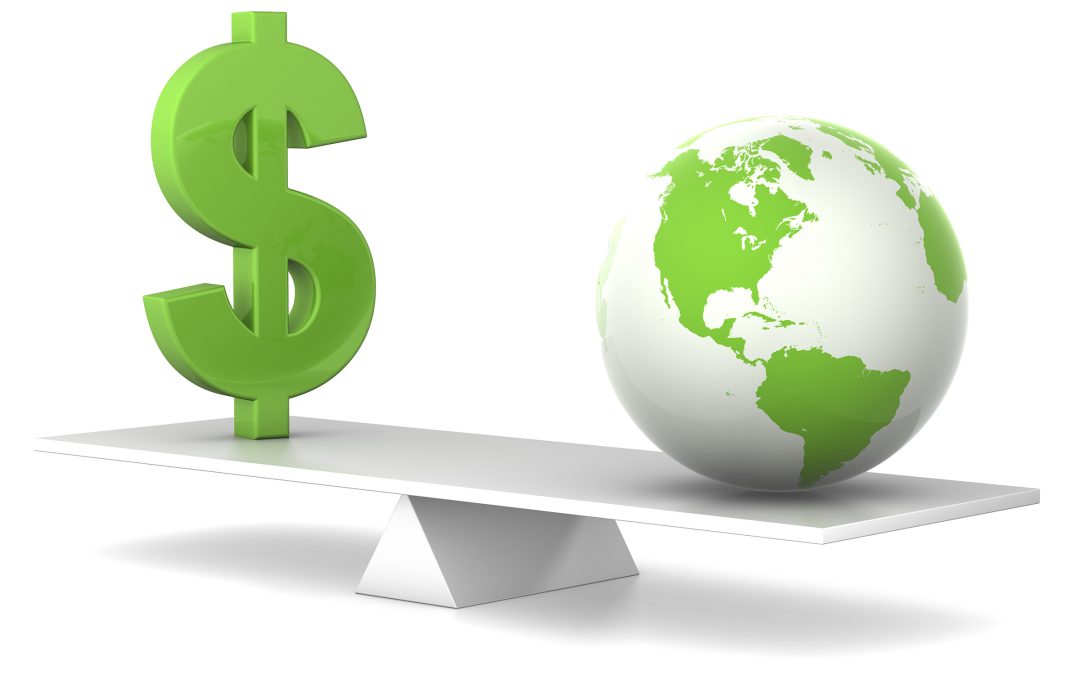I recently read an article in Risk Management Monitor about remarks made by Bruce Carnegie-Brown, Chairman of Lloyd’s, at the recent RIMS ERM Conference in New York City, on the role of risk management in fighting climate change. I almost stopped reading after I saw this quote from Mr. Carnegie-Brown:
Disruption, poorly managed, could destabilize our economy. Delay could destroy our ecosystem.
Two of the convictions I hold most dearly are these: (1) If someone says or writes disruption, I should be highly skeptical. (2) If someone says or writes ecosystem, I should run like Hell and not stop until I drop from exhaustion. But to be fair to Mr. Carnegie-Brown, I read the entire article, at the conclusion of which I was certain he’d said absolutely nothing meaningful or substantive.
The article did, however, prompt me to wonder about something. But before I get there, a little background: The context in which Mr. Carnegie-Brown made his remarks is that of Great Britain. While Great Britain is no longer a member of the European Union (EU), it’s likely to comply with EU regulations for sustainability (another linguistic indication of trouble brewing) if it wants to continue to do business with entities in the EU. And if you think the United States is on the verge of being regulated and wealth-redistributed into oblivion (it is), check out some of these goodies from the EU:
- The EU Taxonomy is a classification system that establishes a list of environmentally sustainable economic activities, intended to help the EU scale up sustainable investment and implement the European green deal. It gives companies, investors, and policymakers appropriate definitions for economic activities that can be considered environmentally sustainable. It also creates security for investors, protects private investors from greenwashing, helps companies become more climate-friendly, mitigates market fragmentation, and helps shift investments where they are most needed. It’s intended to meet the EU’s climate and energy targets for 2030.
- The Non-Financial Reporting Directive (NFRD) is aimed at public-interest entities with more than 500 employees and a total balance sheet of more than 20M EUR or a net turnover of 40M EUR.
- The Corporate Sustainability Reporting Directive (CSRD) is intended to replace NFRD by the end of 2022. CSRD will extend it to all companies, will introduce more detailed reporting requirements according to EU sustainability reporting standards, and will require the auditing of such reports. EU-taxonomy also will drive additional transparency by requiring asset managers to report the percentage of turnover, CAPEX, and OPEX aligned with EU Taxonomy and to report the percentage of their portfolios aligned with EU-taxonomy by 2024.
- The Sustainable Finance Disclosure Regulation (SFDR) legislates greater transparency for ramifications for investors on matters of sustainability by determining mandating the disclosure of 50 Principal Adverse Impacts (PAIs), Environmental, Social, and Governance (ESG) KPIs that address the sustainability risk of investments such as GHG (greenhouse gas) emissions, Carbon Footprint, Violations of UN Global compact principles, unadjusted gender pay gaps, and others. SFDR applies to all financial market participants —investment firms, pension funds, asset managers banks, and insurance companies with more than 500 employees. The disclosure applies to sustainability practices at the entity level and financial products on the product level.
All of this suggests that if you go into business for the purpose of complying with sustainability regulations, you’re on the right track. If you go into business for the purposes of satisfying market demand by creating products and services, of creating jobs, or of turning a profit, not so much. But on to my wondering.
About That Science …
What happens if we do all that shit — blame climate change on people, stifle people and businesses with regulatory mandates, hinder their ability to be productive, re-distribute their wealth, et al. — and the climate continues to change anyway? What if it gets worse (in relation to what it was, what we want, or what we expect)? What makes us think it won’t?
In April of 1992, George Carlin said this in New York City:
The planet isn’t going anywhere … we are … We’re going away and we won’t leave much of a trace either, thank God for that … maybe a little styrofoam … The planet will be here, we’ll be long gone … The planet will shake us off like a bad case of fleas, a surface nuisance … The planet will be here for a long, long, LONG time after we’re gone and it will heal itself, it will cleanse itself cause that’s what it does. It’s a self-correcting system. The air and the water will recover, the earth will be renewed.
He was right. If you doubt that, watch the eruption of New Zealand’s White Island Volcano. And if you think that’s manipulated video, search White Island Volcano on YouTube.
There are a number of reasons to do that. Maybe you need a reminder that the Earth remains a dynamic, self-correcting system. Maybe you need a reason to check your planet-meddling arrogance. Maybe you need to question the panic-inducing, control-mongering political rhetoric with which you’re bombarded 24/7. Or maybe you just need to mind your own business, as existentially difficult as that may be.
Whatever the case, keep the climate change. Please.
I’m good.

